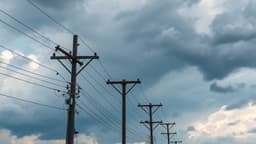Home / Disasters and Accidents / Viral AI-Generated Hurricane Hoaxes Spread Confusion on Social Media
Viral AI-Generated Hurricane Hoaxes Spread Confusion on Social Media
30 Oct, 2025
Summary
- Fake videos of sharks in a hotel pool and a ravaged airport in Jamaica circulate online
- AI video generators make it easy to create and spread realistic-looking misinformation
- Experts warn it's becoming increasingly difficult to distinguish AI-generated content from real footage

As Hurricane Melissa churned across the Caribbean this week, a wave of AI-generated misinformation has flooded social media. Viral videos purporting to show the storm's devastation, including footage of sharks swimming in a Jamaican hotel pool and the Kingston airport being ravaged, have racked up millions of views on platforms like X, TikTok, and Instagram.
However, these clips are not real. They were created using AI video generators, making it easy for bad actors to produce and spread realistic-looking but entirely fabricated content. Jamaica's education minister has urged the public to rely on official channels for information, as many of these videos are fake.
Experts note that while hoax photos and videos often surface during natural disasters, the rise of accessible AI tools like OpenAI's Sora has taken the problem to a new level. The synthetic clips appear alongside genuine footage, sowing confusion among social media users. Telltale signs like blurred logos or unnatural details can help identify AI-generated content, but as the technology improves, it's becoming increasingly difficult for the average viewer to distinguish reality from deepfakes.
The creators of these hurricane hoaxes may not always be trying to hide their work, as some are simply experimenting with AI for attention. But the potential for misinformation to spread rapidly and undermine public trust during crises is a growing concern. As the technology advances, fact-checkers and platforms will need to stay vigilant in combating the flood of AI-powered fakes.




